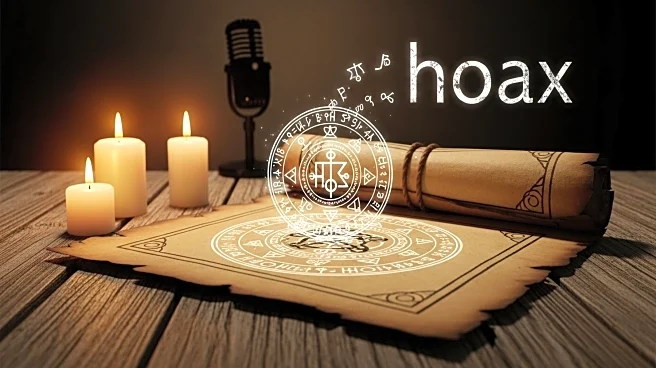What's Happening?
The term 'hoax' has a fascinating history, originating from the magician's incantation 'hocus pocus.' This phrase, popularized by a 17th-century magician named William Vincent, has evolved into a term for deception and trickery. The word's transformation reflects broader cultural and historical contexts, including its use in political and social discourse. The exploration of 'hoax' highlights the interplay between language, magic, and societal beliefs, particularly in the context of misinformation and conspiracy theories.
Why It's Important?
Understanding the origins of 'hoax' provides insight into how language shapes perceptions of truth and deception. In today's digital age, where misinformation spreads rapidly, the concept of a 'hoax' is more relevant than ever. The historical context of the term underscores the enduring human fascination with magic and illusion, as well as the challenges of discerning reality from fiction. This exploration is crucial for navigating contemporary issues related to media literacy and critical thinking.
Beyond the Headlines
The evolution of 'hoax' reflects broader societal shifts in trust and skepticism. As technology advances, the line between reality and illusion becomes increasingly blurred, raising ethical questions about the role of media and technology in shaping public perception. The historical roots of 'hoax' serve as a reminder of the power of language to influence beliefs and behaviors, highlighting the need for vigilance in an era of digital manipulation.










